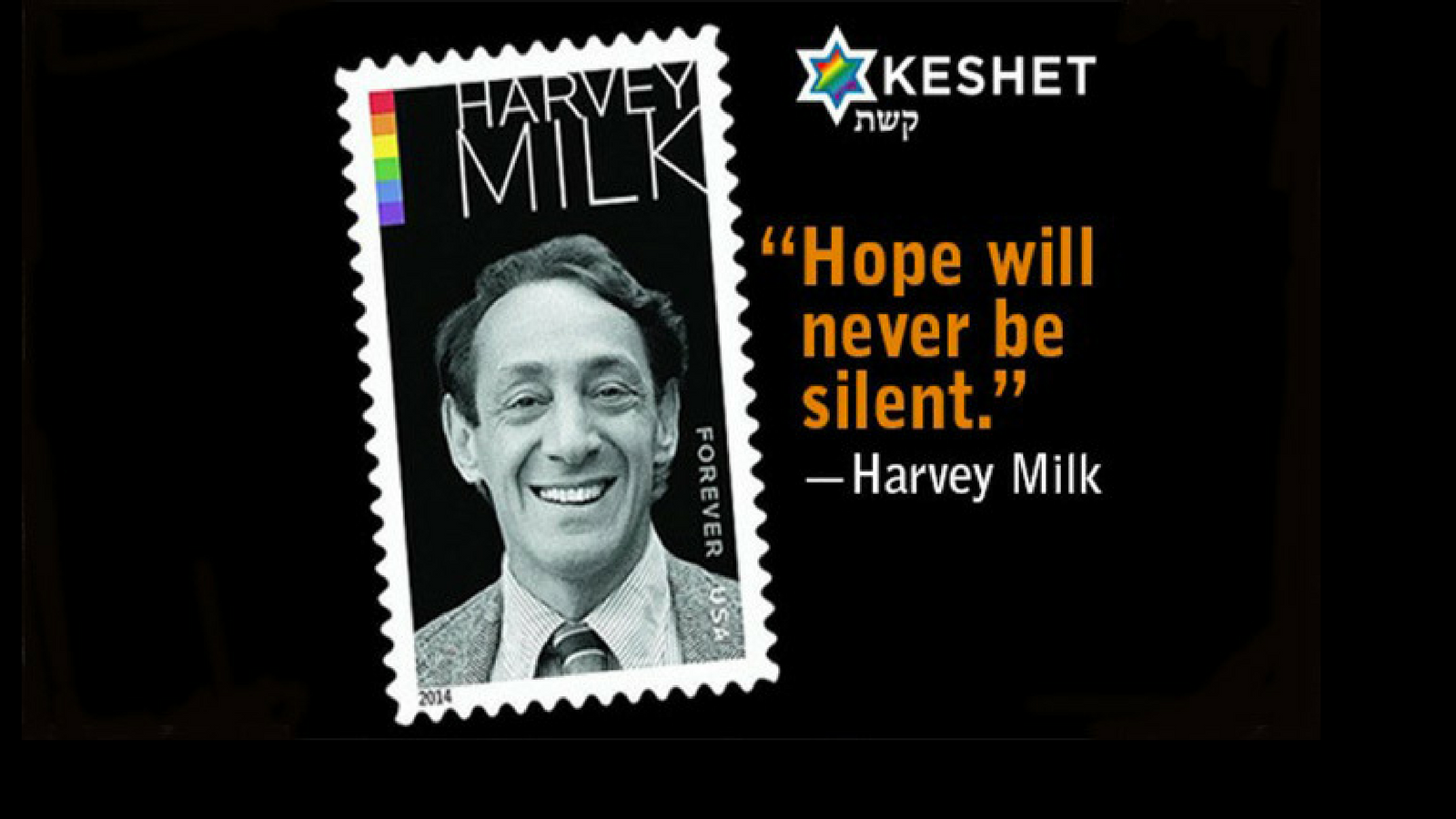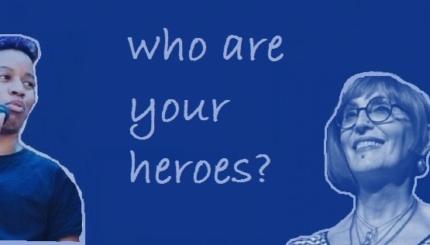In October of 1987, I was a passenger in my mother’s silver Mercury Sable as she drove through the streets of Washington, D.C. We lived in suburban Potomac, and my mom, my brother Jeff, my stepfather, and I were in the car for a Sunday trip–perhaps headed to one of Washington, D.C.’s many museums.
I actually don’t recall the destination because we never arrived at it. As we were driving along, the traffic slowed to a crawl and then stopped. My mom had driven us into the middle of The Second National March on Washington for Lesbian and Gay Rights. My mom, never one to miss a good protest march — whether it was in support of Soviet Jewry or against restrictions on women’s reproductive rights — abandoned the car in the middle of the street. We joined 750,000 others marching for gay rights. We marched against Ronald Reagan’s administration’s lack of acknowledgment of the AIDS crisis and against the Supreme Court’s recent ruling in Bowers v. Hardwick upholding the criminalization of certain sexual acts–even between two consenting men in the privacy of their own home. We marched with the Dykes on Bikes motorcycle club; with folks mourning their loved ones recently lost to AIDS; with brightly colored floats carrying sparkling bedecked drag queens; and with other parents marching along with their own children. We marched in support of the basic human rights of what we now call the LGBTQ community.
Thirty years ago, that parade let me know–when I was 10 years old–that when I was ready, my mom would have my back.
I came out two years later, at age 12, and I have been fighting for LGBTQ rights ever since.
At 15, living back in the Boston area, Governor Weld asked me–along with a few others from the Boston Alliance of Gay and Lesbian Youth (BAGLY)–to testify before the Governor’s Commission on Gay and Lesbian Youth. He had formed this commission in response to the awareness that LGBTQ youth attempt suicide four times as often as our cisgender, heterosexual peers. The next day I returned to school–a prestigious private prep school in Boston’s Back Bay–and received a note asking me to come to the Headmaster’s office. The Headmaster told me that she “didn’t want any queers” in her school and to pack my bags because I was expelled.
Working with the Governor, I was pleased to attend the signing later that year of the first law in the country that specifically protected gay and lesbian students in public schools.
Since then, the path of progress for LGBTQ rights has continued. Success after success–not without with a few setbacks, both legislatively and in the courts–have continued to protect the rights of LGBTQ Americans, not only in schools but in public accommodation, in our access to medical care, and more recently in the arena of marriage.
For many young folks, especially teens, coming out as LGBTQ in the past decade has meant that, while challenges exist, our youth have had the legal and social framework to know that ‘right’–and the law–were on their side. The anti-bullying laws of the last twenty-five years, along with radical and rapid social change, meant that folks coming out today knew that there should be recourse if they were mistreated in school. They could see out and proud role models on television and in their communities, and that many places and communities–like here at TBZ–celebrate diversity instead of scorning it.
We were making progress on yet another front: the rights of our transgender brothers and sisters. I know I wasn’t the only one who had tears rolling down my face last May when the Attorney General of the United States sued the state of North Carolina, saying out loud and proud to the trans community, ” . . .no matter how isolated or scared you may feel today, the Department of Justice and the entire Obama administration wants you to know that we see you; we stand with you; and we will do everything we can to protect you going forward.”
Last June, I was so deeply honored to attend President Obama’s Reception at the White House in honor of LGBTQ Pride month. Again tears flowed down my face as I saw, in the White House, the trans pride flag flying next to an LGBTQ youth choir singing hymns and songs. An LGBTQ youth choir! Singing at the White House! While all of us knew there was still much work to be done, I looked back on my twenty-five years of work for LGBTQ rights and, at that moment, success seemed possible, if not inevitable.
Waking up on November 9th, 2016, however, shattered that illusion. Shell-shocked and broken, I joined many of you that evening to pray together in community, knowing that the path ahead would likely take us backwards.
We weren’t wrong. On January 20th, at the very moment Trump was sworn in, all LGBTQ content was removed from White House and State Departments websites. Almost immediately we learned that LGBTQ folks would no longer be counted in the census. As Sean Cahill of Fenway Health said, “If gays and lesbians aren’t counted, they don’t really count.”
Days later Trump signed his first travel ban, which caused protests across the nation. For LGBTQ refugees fleeing persecution, though, the human rights group Outright International called this a “death sentence.”
In February Betsy Devos, a mega-donor to anti-LGBTQ causes, was confirmed. Shortly after, we saw rescinded the Obama administration guidance on equal access to facilities for transgender students. This removed needed protections and left the fate of trans students up to states and local school districts.
The confirmation of Jeff Sessions as Attorney General means that we can no longer count on the Department of Justice to protect LGBTQ or any civil rights. The Executive Director of Lambda Legal has called Sessions “a lifelong opponent of the civil rights of LGBT people, people of color, women, and immigrants.”
Trump sent two anti-LGBTQ groups to the UN Commission on the Status of Women, including one named as a hate group by the Southern Poverty Law Center.
He appointed to the Office of Civil Rights at HHS Roger Severino, who said that transgender equality efforts are “the radical left using government power to coerce everyone, including children, into pledging allegiance to a radical new gender ideology.”
On March 27th, Trump signed an Executive Order removing protections for LGBTQ workers in companies receiving federal contracts.
The proposed healthcare law, which would remove many protections for all Americans, would be particularly devastating for the LGBTQ community. One example: allowing insurance companies to reinstate lifetime coverage caps–not to mention pre-existing condition exclusions–would have horrific impacts on those of us living with HIV; the medications we need to stay alive often cost more than $10,000 each month.
This is just what Trump has done in his first hundred days.
With Republican majorities in many state legislatures, there has been an onslaught of efforts to undermine other hard-won LGBTQ civil rights. Arkansas is now refusing to let same sex parents put both names on their children’s birth certificates. In Texas, a law is moving through the legislature that will allow adoption agencies that receive public funding to refuse to place children not only with LGBTQ families, but also with single parents, Muslims, and with Jews, if those identities conflict with their own ideologies. Here in Massachusetts, we face on the 2018 ballot a measure that would overturn the hard-won public accommodations protections for transgender folks here in the Commonwealth.
As Mary Bonauto of GLAD (GLBTQ Advocates & Defenders) said, “When you have a bully in charge at the highest level, that emboldens bullies at the local level.”
June is the month of LGBTQ pride, commemorating those days in 1969 when the patrons of a little gay bar in the Village had had enough of the harassment, enough of the police intimidation, and enough abuse of power. Those LGBTQ Americans stood their ground, stood up for their rights, and sparked a civil rights movement guided by the simple idea that all of us are entitled to equal protection of the law, regardless of gender identity or sexual orientation.
I will share with you one more story about my mom, and why I do this work, and why I stand before you today, when those who know me know I’d rather be sitting in the third row praying into Shabbat than standing up here giving a speech. When I was a kid, much younger than I was in the earlier story I shared–maybe six years old–my mom was driving my brothers and me when our car broke down on the side of the road. We walked to the nearest phone, which was in a bar, and my mom called for a tow.
A patron in the bar looked at my mom, alone with her three young boys.
“What’s the difference between a Jew and a pizza?” he asked, and then said, “A pizza doesn’t scream when you put it in the oven.”
What my mom did next changed my life forever. She gathered her 5 foot 6 inch frame to her tallest and approached the man.
“We are Jews,” she told the patron, “and I won’t let you talk in front of my boys like that.”
My mom taught me to stand up for what is right. My mom taught me that our Jewish tradition demands it. And my mom taught me that I am obliged to do my part, when it is convenient and easy, and when it is not.
Today, the world is very different from the world we inhabited on November 7th. I know that future generations will look back at the actions we do or do not take today, and we will be judged by how bold are our actions.
Today I stand here before you, but next Sunday I will be marching that same route I marched in 1987. I’ll be marching for LGBTQ equality, unity, and pride in yet another March on Washington. Thirty years ago I marched this route with my mother, my brother Jeff, and my stepfather. This year I hope to march shoulder to shoulder with my community, secure in the knowledge that, as the Jewish American hero Harvey Milk said, “Hope will never be silent.”


